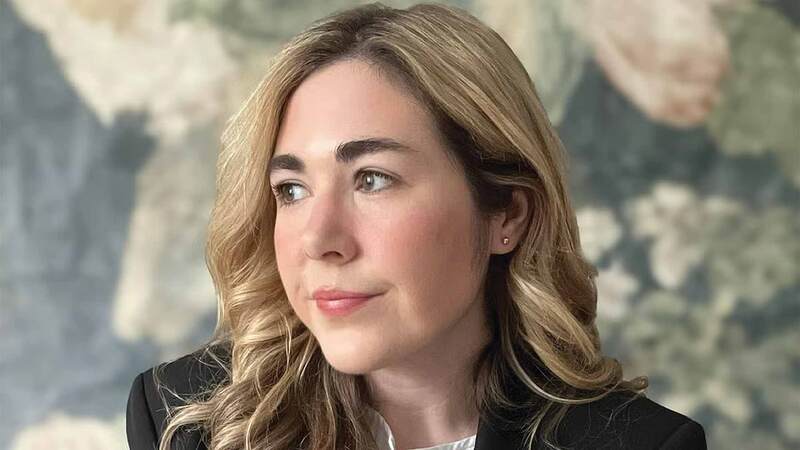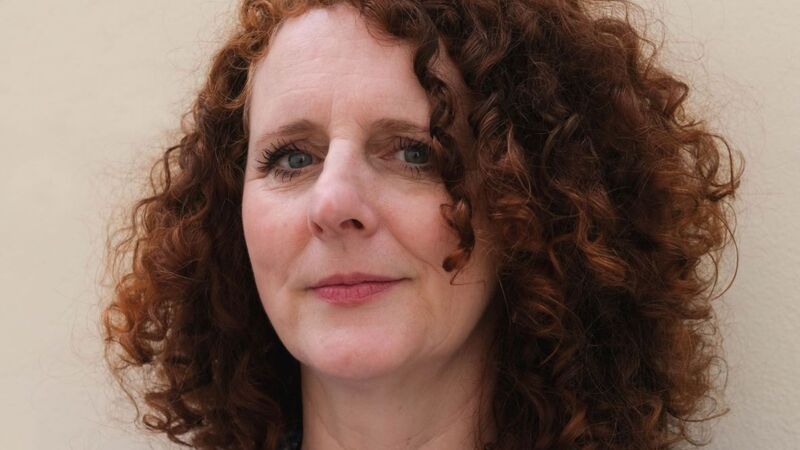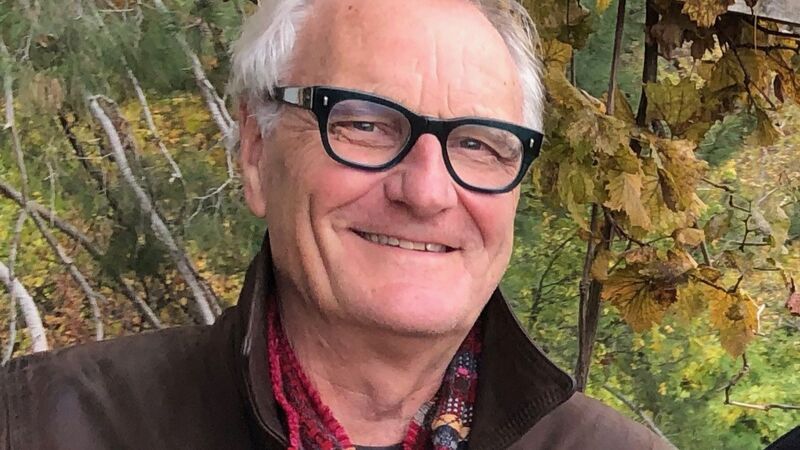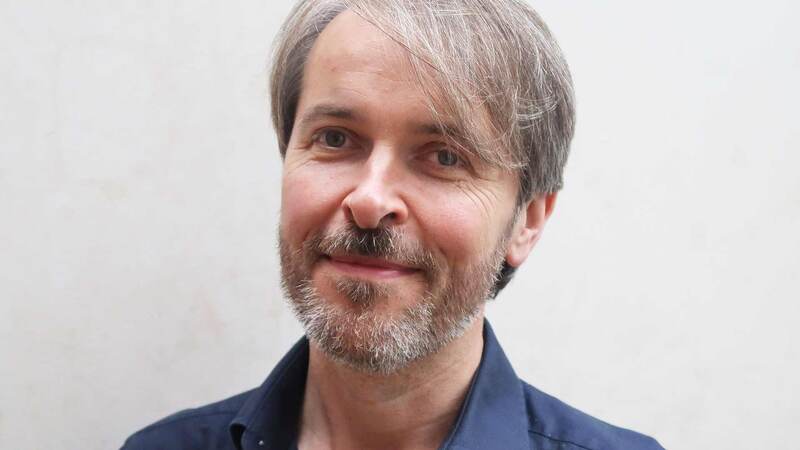You are viewing your 1 free article this month. Login to read more articles.
Rhianna Pratchett | "I can milk a goat and spin wool: very useful in a post-apocalyptic scenario"
Being tabbed as the newest “special guest” to author a Fighting Fantasy book is something of a childhood dream come true for Rhianna Pratchett.
Being tabbed as the newest “special guest” to author a Fighting Fantasy book is something of a childhood dream come true for Rhianna Pratchett. The video game writer and screenwriter was a superfan of the iconic Choose Your Own Adventure-esque series when she was young. Maybe a little overly attached to the books, as they led to an early brush with the long arm of the law (OK, it was the hard nuts at Somerset County Council library services).
“I read Fighting Fantasy a lot as a kid,” Pratchett explains. “I used to get in trouble with my local library for not bringing them back. I remember a threatening letter that they were going to take me to court if I didn't return one of the books. I was reading a lot and I managed to lose it under my bed. I wasn't a very tidy child and I'm not a tidy adult.”
If you did not grow up in the 1980s or are not the kind of person whose perfect Saturday night is a 10-hour Dungeons & Dragons marathon, you might be unfamiliar with Fighting Fantasy. Created in 1982 by Games Workshop founders Ian Livingstone and Steve Jackson—aided greatly by then Puffin editor, now literary agent Geraldine Cooke—the interactive fantasy novel/role-play "gamebooks" were a sensation, eventually going on to shift around 20 million units worldwide, and it is no exaggeration to say the series was one of the foundation stones of modern fantasy gaming, be it in book, board or video format.
Puffin stopped publishing the series in 1995, as the market for the books had largely shifted to computer and console games (both Livingstone and Jackson have been heavily involved in video game development since they sold Games Workshop in 1991, Livingstone most famously with Tomb Raider). The series was acquired by Wizard in the 2000s, the now defunct imprint of Icon Books, in order to mostly release reprints.
Yet, the license was bought and resurrected by Scholastic in 2017, which happily coincided with the series’ 35th anniversary, a burst of ‘80s nostalgia (helped by “Stranger Things” and a resurgence in the popularity of Dungeons & Dragons) and the overall “Game of Thrones” booster shot to the fantasy sector. Suddenly, Fighting Fantasy was cool again. Scholastic has rejacketed and rebooted some backlist, released a tranche of new titles, while Young Bond creator Charlie Higson was the first special guest author to hop on board with The Gates of Death.
Pratchett has been in the games world since graduating from the London College of Communications in the mid-90s, first covering the industry as a journalist, then moving into writing games in 2002. Much of her work has been in the adventure/fantasy space working for some of the industry's biggest franchises like Overlord, Mirror’s Edge, Bioshock and Tomb Raider.
Being brought into the Fighting Fantasy tent was not really a complicated process: “Ian [Livingstone] just asked me. He and I have been aware of each other for many years; in 2013, we did a lot of promotion for the new Tomb Raider game together as sort of Lara’s old dad and one of Lara’s new mums. Fighting Fantasy seemed a great challenge, an intersection between my writing and game design work. And, I hadn’t really written all that much prose fiction before, apart from short stories, as I got into games and film/TV because my father pretty well had that prose part sewn up.”
Game night
Her father, of course, was the late, great Sir Terry Pratchett, and while his considerable shadow made her leery of writing fiction, he encouraged her love for gaming. She says: “I’ve been playing video games since I was six years old. At first, dad played the games and I used to watch them and map the games out; it was a bit of a spectator sport, a bonding time between us. He had this very big office chair and I would kind of tuck myself behind him like a human bolster cushion. In my teens, we would watch each other play and we would be emotionally in it together. I got his hand-me-down machines, so I used to play games that he had played first and he completely spoiled the T-Rex scene in the first Tomb Raider because he was so excited about it that he told me what happened.”
Gaming wasn’t just with her dad. A friend’s father worked for HP, so she always had the most up-to-date kit and the two would play “a lot of age-inappropriate stuff” like Leisure Suit Larry, the somewhat infamous classic whose adult-themed story line has the titular character, a 40-year-old, balding, double-entendre-spewing nerd, trying to seduce young women. “It was very educational,” Pratchett insists. “To get past the ‘are you over 18’ test you had to answer ‘adult’ questions about things like the American political system, which I had to look up. I learned the word prophylactic from the game when I was about 11.”
Outside of Leisure Suit Larry, much of Prachett’s early life seems very wholesome. Her father’s books didn’t hit the bestseller lists until the late '80s so the family didn’t have that much money for much of her childhood. She says: “It was very rural and pastoral. We lived in a little cottage on the edge of a valley, had a veggie patch, chickens and ducks in the back garden and goats in the front. You could probably find people doing this in Islington, but they do it for hobbies—we did it because we needed the food and the milk. I used to run around the valley, climb trees, go walking...I was probably among the last generation of kids allowed to be free in nature. And, I could milk a goat and knew how to spin wool, probably very useful in a post-apocalyptic scenario.”
Stormy weather
Pratchett's Fighting Fantasy title is Crystal of Storms in which the reader/player is a member of the Sky Watch charged with keeping the peace in the floating cloud islands of Pangaria. When one of the islands, Nimbus, crashes into the Ocean of Tempests after an explosion, you set out to explore the other islands, facing off against the elements and sea beasts, in order to try to raise Nimbus from the depths.
Pratchett pitched the idea to Scholastic, inspired by both a portion of Higson’s book in which there was a flying bier, “and I wanted to play with that combination of flying tech/magic idea” and, somewhat more leftfield, after reading of a rare cloud formation mirage that appeared over southern China a few years ago which looked like a floating city.
 To ensure Crystal of Storms remained in Fighting Fantasy house style, true to its universe and adhered to the series structure, Pratchett worked closely with Scholastic editor Jonathan Green. She says: “There is a sort of high fantasy tone and they don't like too many jokes. I probably bent that as much as I could, but Scholastic were thankfully open for that. So, my tale is maybe a little bit lighter than some others and there is a police procedural element which is quite new to the world. But, I did bring back some classic monsters from the books of the '80s and '90s, and I had a bit of fun with that.”
To ensure Crystal of Storms remained in Fighting Fantasy house style, true to its universe and adhered to the series structure, Pratchett worked closely with Scholastic editor Jonathan Green. She says: “There is a sort of high fantasy tone and they don't like too many jokes. I probably bent that as much as I could, but Scholastic were thankfully open for that. So, my tale is maybe a little bit lighter than some others and there is a police procedural element which is quite new to the world. But, I did bring back some classic monsters from the books of the '80s and '90s, and I had a bit of fun with that.”
Astonishingly, after 38 years and over 120 gamebooks and compendiums, Pratchett is the first woman to write for the series. She points out there are more people called Steve Jackson to have written for Fighting Fantasy than women (the series co-creator as well as an American games designer and writer of the same name). She adds: “This seems odd because women write fantasy all the time. But maybe the intersection between women who write fantasy and those that understand the game-like design is smaller.”
Up next for Pratchett is a series of film and TV projects, part of which comes from Narrativia, the company set up in 2012 to handle the multimedia and merchandising for her father's work, which she co-directs. She remains adamant that there will never be an author hired to expand Terry Pratchett's Discworld universe in book form but plans are certainly afoot in film and TV. During lockdown, Narrativia inked a development deal with Motive Pictures, the new production company led by former Channel 4 and Film 4 producers Simon Maxwell and Sam Lavender, which is backed by LA-based Endeavor Content. Pratchett says: "We have something really exciting and fun coming up, but I can't talk about it yet."
The Motive/Endeavor deal, incidentally, does not cover "The Watch", a BBC America police procedural based on the Ankh Morpork City Watch, which appear in several Discworld novels. The series is meant to be shown in January 2021 and when the studio revealed images from the show some months ago, there was much consternation throughout the Discworld fandom that it would not be true to the books. Pratchett says: "I'm not involved with 'The Watch', it's from an older deal, so I can't really comment on it. But, I would say [the Motive/Endeavor partnership] is about bringing my father's books to the screen in a way he would be proud of."
Outside of Narrativia work, she is excited about another writing project with Complete Fiction, the production company co-owned by film director Edgar Wright, but that is also hush-hush at the moment. She says: "My whole career is one where I kind of carved out something that wasn't there before. When I started in gaming, there really wasn't a thing as a games writer, as the writing was the last thing thought about as a game was developed. So, at the moment, I'm in a sort of hybrid niche, doing a lot of film and TV work, along with some games and the occasional fun stuff, like Crystal of Storms."
Crystal of Storms (Scholastic, £6.99, 9781407199689) will be published on 1st October 2020.














